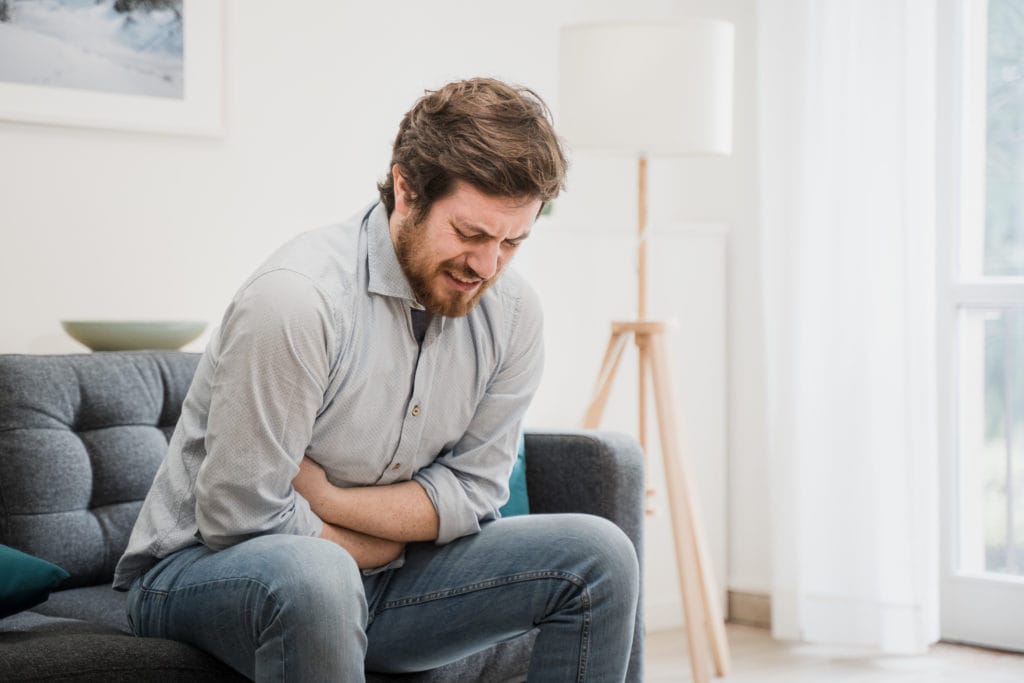There are five different chemical types of kidney stones. We can prescribe a 24-hour urinalysis to determine the type based on chemical composition.
The five types are:
- Calcium oxalate (low oxalate diet)
- Calcium phosphate
- Uric acid stones (reduce meat in diet, may benefit from allopurinol and urine alkalinization)
- Struvite (associated with infections)
- Cystine stones (very rare; results from a genetic disorder)
After your first attack of kidney stones, there is an 80-90% chance of recurrence within the next 10 years. Knowing which kind of stone you are prone to can aid in choosing a diet that reduces or prevents recurrences.
For all stone types, the best lifestyle change to reduce recurrences is to restrict sodium and drink 3 liters or more of fluids per day.
Anyone who has ever had to endure kidney stones understands how painful they can be. That’s why it’s so important to treat kidney stones properly and as quickly as possible. Often, kidney stones can pass through the body without exhibiting any symptoms. If they are large enough or if they become lodged in the ureter tube, they can be extremely painful and they must be dealt with. Identifying the problem is the first step to rectifying it. Early identification of the symptoms of kidney stones is the key. These symptoms include:
- Severe pain which can be both sharp and sporadic. Pain can move through your side or back and into your groin
- Discomfort while seated, causing you to move or shift positions
- Muscle contractions
- Nausea
- Vomiting
- Blood in your urine
- Frequent urination, combined with a burning sensation
- Chills
- Fever
If you exhibit any of the above symptoms, you should seek the advice of a qualified doctor, even if the stone can be treated at home.
If your doctor determines that the stone should be able to pass on its own, he or she may prescribe pain medication to make the process easier to handle. Nonsteroidal anti-inflammatory drugs can help, and in some cases stronger pain medicine could be prescribed.
If the kidney stone causes severe pain due to the size of the stone or infection, further steps and even a medical procedure may be needed to eliminate the stone and relieve the pain. To identify what is needed to deal with the problem, a number of tests may be required, including:
- Urinalysis
- Blood tests
- X-rays
- CT scans
- Ultrasounds
- Lab analysis
Lab analysis of the stone may be an important step in treatment because the resulting information can be helpful in preventing more stones from forming in the future.
Kidney stones treatment and medical procedures for severe cases:
Severe cases, large kidney stones, stones that cause blood in the urine, and stones that are at risk of causing kidney damage or recurring urinary tract infections often require further treatment. An experienced physician will help you choose a treatment that best suits your case, selecting from the following procedures:
- Sound waves or shock waves can be utilized to break up stones so that you can then pass the stones through your system. This treatment usually takes about an hour and can cause discomfort. In some cases, patients are sedated to make the procedure more comfortable.
- Surgery might be required to remove the kidney stone. In this case, a small incision is made in your back and you will be put under general anesthesia during the surgery. Usually, your recovery time will be quick and you will be out of the hospital within a day or two. If you have a chronic kidney stone problem, surgery can be utilized to treat the underlying cause. The parathyroid gland in your neck might need to be treated. The gland may have a tumor or an irregularity that is causing the formation of the kidney stone.
- A scoping procedure can be used effectively to eliminate small, pesky, dangerous kidney stones. In this case, a tiny camera is passed through the urinary tract to locate the kidney stone. Once located, it is broken apart so that it can pass through your body. A stent (a tiny tube) might be used to help you recover and to lessen painful swelling. This procedure can be completed with a local anesthetic or you might be put under general anesthesia based on your situation.
